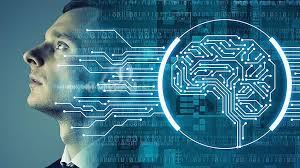The Face-Off in Sales Performance
The digital age brings a pressing question to the forefront of business strategies: In the realm of sales, who reigns supreme—AI or human agents? The rapid evolution of technology and the enduring nuances of human interaction set the stage for a dynamic contest.
Speed and Data Handling: AI's Domain
AI tools excel in environments driven by data and speed. In sectors like e-commerce, AI systems can analyze millions of consumer data points—from purchasing habits to browsing patterns—in real time. This capability allows AI to personalize recommendations to an extent that is humanly unattainable. For instance, Amazon's AI algorithms suggest products with a precision that has led to a 35% increase in sales, according to internal reports.
AI also streamlines the sales process by automating tasks such as lead qualification and follow-ups. A study by Salesforce revealed that AI integration in sales increased productivity by up to 40%, allowing sales teams to focus on closing deals rather than managing data.
The Human Touch: Building Relationships
Despite AI’s prowess in analytics and efficiency, human sales agents bring irreplaceable qualities to the table. Empathy, persuasion, and the ability to build relationships are areas where humans have a clear advantage. In industries where trust and long-term relationships dictate purchasing decisions, such as real estate or high-end B2B sales, human agents perform significantly better.
Humans are adept at reading subtle cues like tone of voice or body language, which are essential in negotiating deals and understanding client needs on a deeper level. In these contexts, human sales agents outperform AI, with some reports showing that complex sales scenarios see a 30% better closure rate when handled by humans.
Synergy Beats Competition
The most successful sales strategies leverage both AI and human strengths. By using AI to handle data and initial customer interactions, businesses can free up human agents to focus on complex negotiations and relationship management. This hybrid model not only enhances efficiency but also maximizes customer satisfaction and loyalty.
For example, a leading telecom company implemented AI to sift through initial leads and identify high-potential customers. Human agents then took over to personalize the outreach. This strategy resulted in a 50% increase in conversion rates compared to using traditional, human-only sales methods.
Future Trends and Ethical Considerations
As AI technology continues to evolve, its role in sales will likely grow, but ethical considerations such as privacy, consent, and transparency must guide its integration. Businesses must balance the efficiency of AI with the ethical implications of its use to maintain trust and integrity in customer relations.
Dive Deeper
To understand more about the comparative advantages of AI or human sales agents, visit AI or Human. This resource provides in-depth analyses and discussions on the evolving roles of AI and human capabilities in various sectors. By embracing both AI and human strengths, businesses can navigate the complexities of modern sales with a competitive edge that is both innovative and profoundly human.
